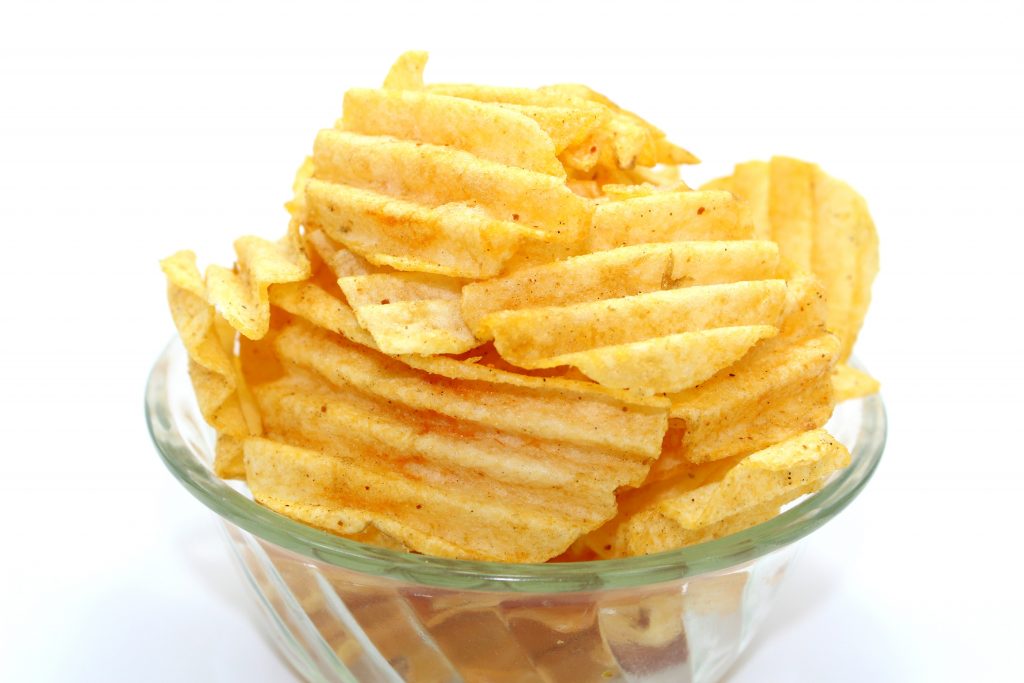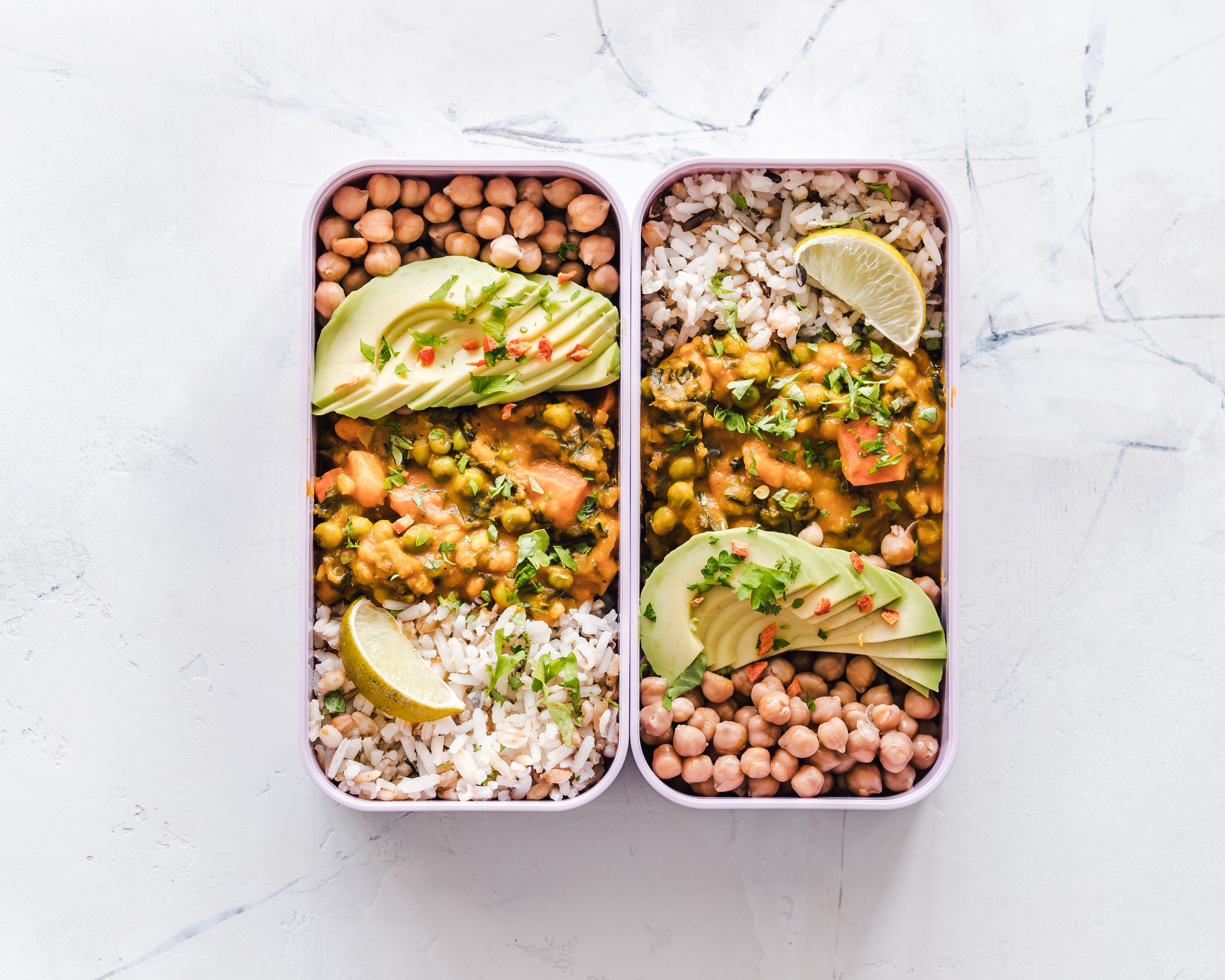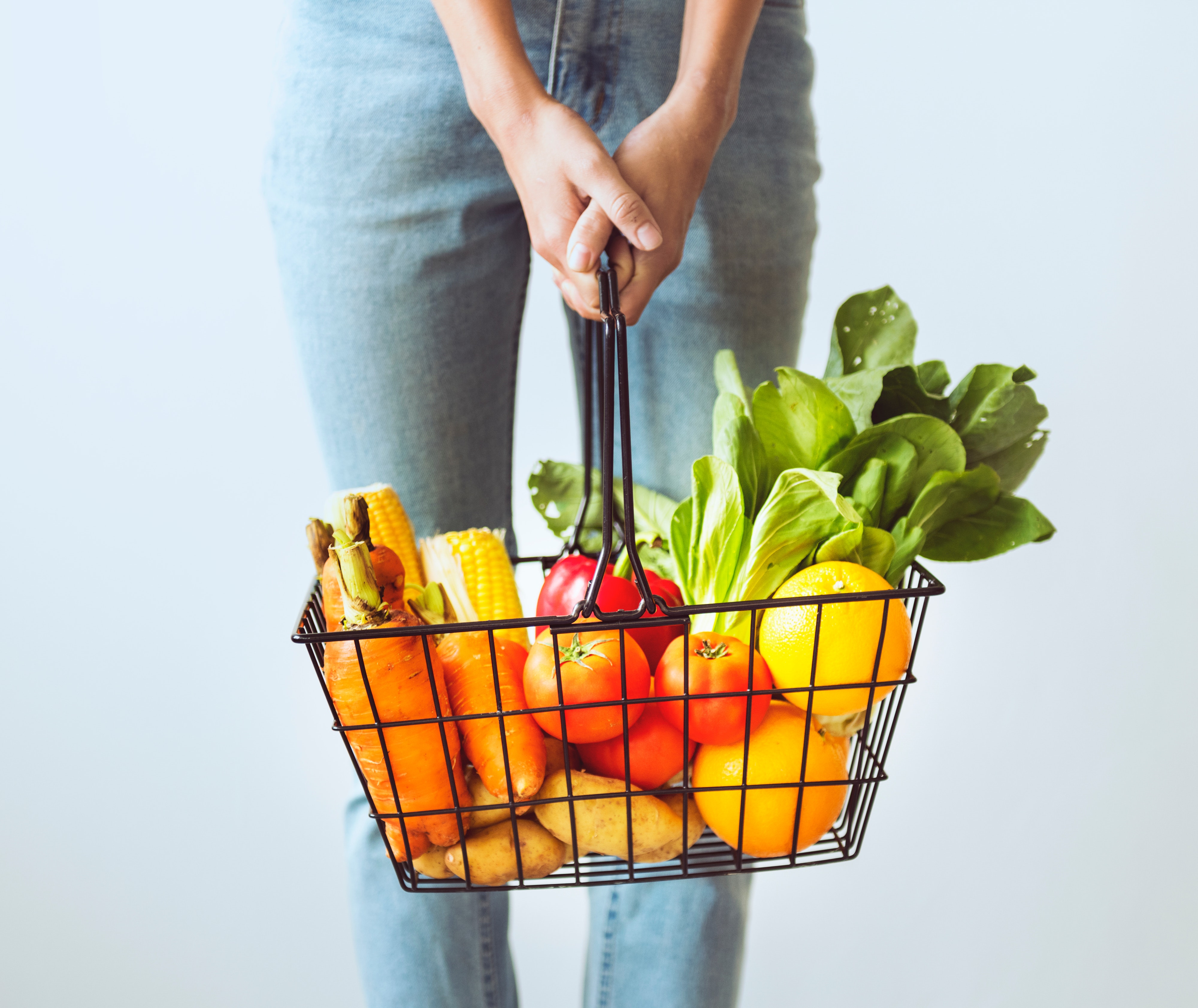Over the past few years, more and more people have decided to switch to a vegan (or plant-based) diet. Whether it was from watching documentaries, like “Forks Over Knives” and “What the Health,” or answering Beyonce’s call for everyone to go vegan, this lifestyle has become more mainstream. Everyone knows someone who has at least TRIED following a vegan diet.
A vegan diet is one that excludes ALL animal products. This includes dairy products (cow milk, yogurt, cheese, etc.), eggs, and any product that contains animal products in the ingredients (like Jell-O, which contains animal gelatin). Some vegans also refuse to use ANY animal products, like not wearing furs and leathers or not using certain cosmetics.
Following a vegan diet can have amazing benefits when it incorporates increased intakes of healthy food. Some of the benefits include decreased blood pressure, weight loss, controlled blood sugar levels, lower risk for heart disease, fewer aches and pains, and reduced risk for cancers. The problem is, many people drop the animal products, but their eating habits still need major tweaks. Let’s do a quick check to see how your diet adds up…

Limit highly processed foods
You’ve decided to stop eating animal products, but are you still eating junk? French fries, chips, candy and other snack foods may still be a part of your normal diet. Highly processed foods also include frozen meals and other packaged foods.
This means you are probably eating too many added fats, sugars, sodium, artificial flavors, colors, sweeteners, preservatives, and the list goes on. Just because it’s vegan does not mean it’s healthy!
Highly processed foods are typically low in nutrients, so if your diet is high in these foods, you’re not getting the vitamins, minerals, and fiber your body needs to fight off diseases and remain in good health.
Improper nutrition affects your energy levels, sleep patterns, cravings, immune system, and, often, your weight.
Limit how frequently you consume highly processed food products, and aim to eat foods that are fresh and real. A real food is one that is in as close to its natural state as possible. Read the ingredients list and look for foods with as few ingredients as possible.

Reduce added sugars
Guess what delicious substance is still included in a vegan diet? Sugar! Nowadays, sugar is added to EVERYTHING, making it easy to overindulge.
The American Heart Association recommends no more than 6 teaspoons of added sugar (24g) for women and 9 teaspoons (36g) for men per day. Most people consume more than that, especially if you consume sugar-sweetened beverages. The average 12oz. soda has 40g of sugar. That’s 10 teaspoons!
Adding sugar to a food adds calories without adding any of the additional nutrients we need.
Our bodies require a certain amount of calories a day to maintain our weight, and we need a certain amount of nutrients (vitamins, minerals, etc.) to keep our bodies functioning properly.
When we eat a piece of fruit, we are eating natural sugar, plus fiber, vitamins, minerals, and phytonutrients that contribute to our health.
On the other hand, when we drink a soda, we’re consuming carbonated water, sugar, colors, flavors, and caffeine, none of which our bodies need.
Many packaged foods have added sugar, and most vegan desserts are still high in sugar. High sugar intake has been linked to increased belly fat and risk of high blood pressure, high triglycerides and cholesterol levels, insulin resistance, diabetes, and heart disease.
Eat enough vegetables
I’ve met vegans who do not like vegetables. I’ve also met vegans who indulge in everything else, but only eat 1-2 servings of vegetables a day. So, I don’t want to assume you are eating enough vegetables just because you are vegan.
Vegetables are a low-calorie way of packing your body with nutrients, like vitamins, minerals, fiber, and phytonutrients. Most vegetables contain water-soluble vitamins, meaning they are not stored in your body. Because they are not stored, you must replenish them every single day by eating a variety of different vegetables.
Next time you’re in the grocery store, look around and notice the various colors of vegetables that are sold. Each color offers a different mix of nutrients, so it’s important to eat a diverse selection.
Aim for at least five servings of vegetables per day, and eat more vegetables than fruit to control your sugar intake. Experiment with new recipes to find tasty ways to add more vegetables into your diet. Need more tips on increasing your intake? Make sure to check out my previous article.

Get the right mix of macronutrients
A healthy diet contains an appropriate mix of carbohydrates, protein, and fat. Animal products typically contribute most of the protein eaten in the diet. Once you remove the animal products, many people are left with a diet that is very high in carbohydrates, moderate in fats, and very little protein, creating an imbalance.
When your diet is carb-heavy, you tend to crave more sugar, feel hungry quicker, and may possibly experience blood-sugar issues. If your blood sugar levels stay elevated, it may cause your body to store more fat, leading to weight gain.
Make sure to prioritize plant-based protein sources to replace the animal sources that were removed. Protein is needed to maintain or build muscle, for healthy bones and teeth, to make enzymes and hormones, to fight diseases, and is included in every cell in your body. A few healthy options include beans, nuts, seeds, lentils, and peas. Include a protein source with each meal to ensure adequate intake.
Lastly, keep in mind nuts and seeds contain more fat than protein. Many vegans pile on the nuts in efforts to increase protein, and consequently eat a higher fat diet than they intend. Keep in mind, healthy fats are great for you, but they are also high in calories. Still use portion control to aim for a balanced diet.

Eat enough food!
After cutting out all the animal products, you may find yourself at a loss of what to eat, and, more importantly, how much.
Removing too many foods without replacing them with healthier items may cause your calories to drop too low and result in weight loss. But, when calories are TOO low, and weight is lost TOO quickly, muscle tends to be lost instead of fat. Not good! Make sure your goal is always to increase healthy behaviors rather than to focus on the number on a scale.
Fruit and vegetables are pretty low in calories, so you will need to increase your intake, along with adding more healthy carbs and fats to boost your calories to the appropriate amount. Some healthy carbs include rice, quinoa, beans, lentils, and starchy veggies like potatoes.
Conclusion
Switching to a vegan diet can be a healthy decision and have a major positive impact on your health. But make sure you are fueling your body the right way, choosing fresh, whole foods in their proper portion and creating well-balanced meals.





0 Comments